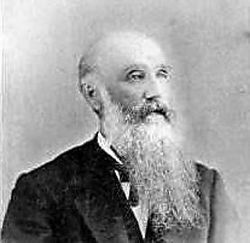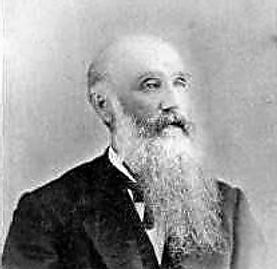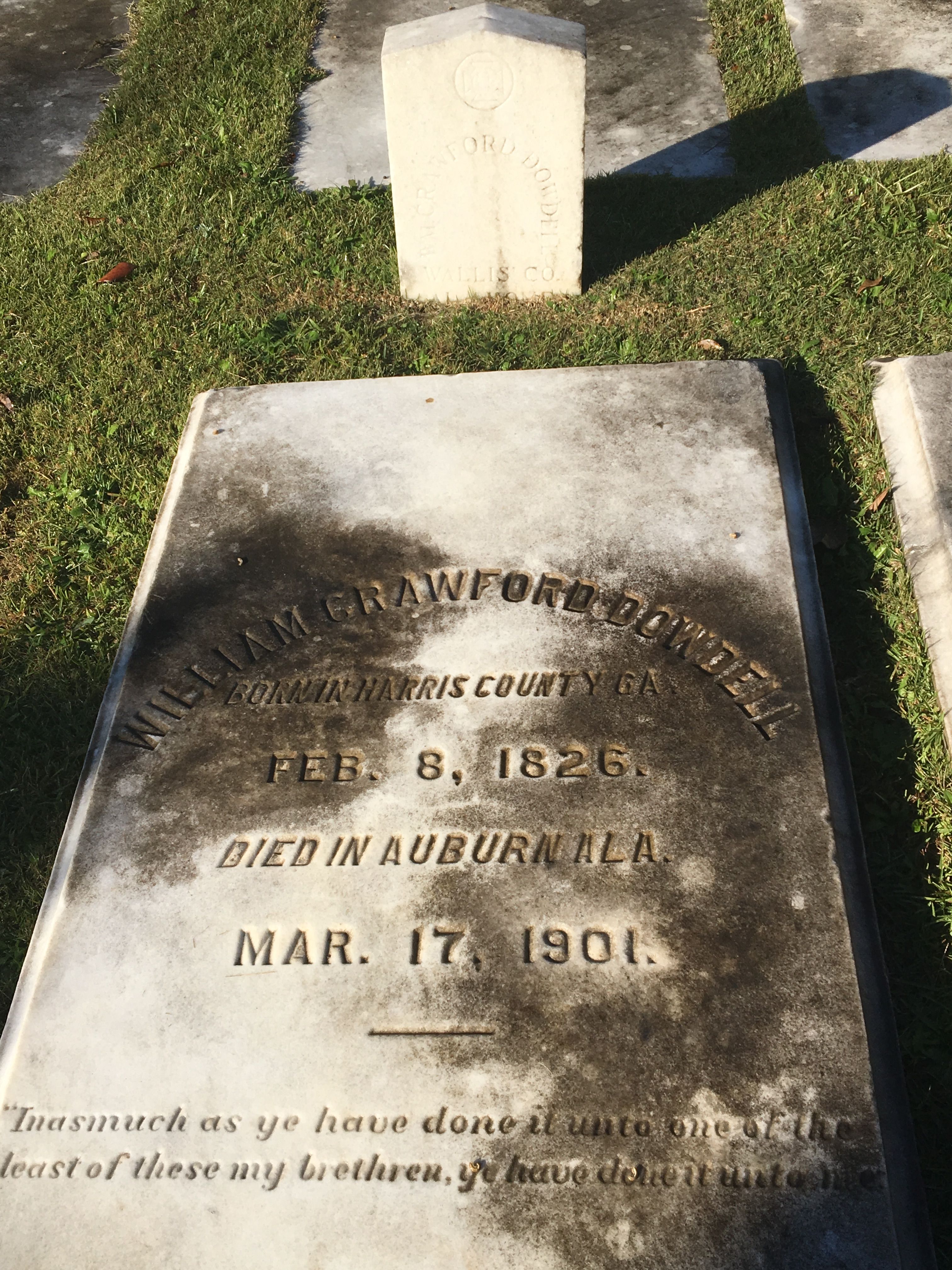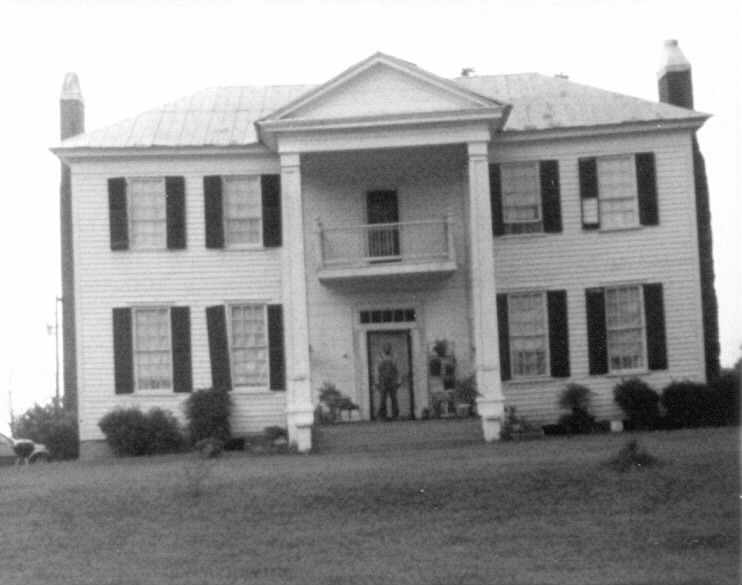Confederate States of America
Son of Lewis Jefferson Dowdell and Elizabeth Clay Farley Dowdell
On the 17th day of March, 1901, on a bright Sabbath morning, Mr. William Crawford Dowdell suddenly died at his home in Auburn, Alabama. His death became quickly known, and brought genuine sorrow to the heart of every man, woman, and child in the town. Death came so peacefully, it appeared that he had simply gone to sleep. “He was not, for God took him.” He was the youngest child of Lewis J. and Elizabeth Dowdell, and was born in Jasper County, Georgia, on the 8th day of February, 1826; he grew to manhood in Harris County, George, removing in early life to Chambers County, Alabama, where he married Elizabeth C. Thomas, and where he lived until 1867, when he removed his with his family to the home at which he died. He was a brother of Col. James F. Dowdell, Mr. Silas A. Dowdell, and Mrs. Wm F. Samford (Susan Dowdell). All of whom preceded him to the grave. He left surviving him his widow, three sons; Wm. Louis Dowdell, James Samford Dowdell, and Silas Charles Dowdell, and five daughters; Mrs. David Merrick (Lula), Mrs. Andrew Lipscomb (Katie), Mrs. Bennett Ross (Lettie), and Mrs. Christopher Davis (Lizzie). His fifth daughter, however, Mrs. Hendley Kell (Caro), died two weeks after he did. Having known him from childhood, if I were to express my real estimate of him as a man and a Christian, it would sound to those who did not know him as fulsome* panegyric.* The royal hospitality dispensed at his country home in Chambers County, and subsequently in Auburn, was proverbial. A happier home did not exist in Alabama. The recipients of his generosity were limited alone by his ability. His life was spent for others. Selfishness had no place in his nature. The poor never appealed to him for charity in vain. His liberality was boundless. The comfort and happiness of others were always uppermost in his mind and in his actions. “Uncle Crawf,” as he was familiarly called by all of his acquaintances, was the one to whom widows and orphans always went when they wanted a favor; he did not know how to bear malice, and if any one wronged him, the wrong was forgotten before forgiveness was asked. In his language, this life was too short to be marred by bearing resentment. Two ministers officiated at his funeral. One of them spoke of him as having the character of John, the Beloved Disciple, and that he exemplified in his life the Thirteenth Chapter of First Corinthians; the other, who had known him from boyhood, gave his testimony: “Behold an Israelite indeed, in whom is no guile.” It is natural for me, a kinsman who loved him beyond measure, to have an exalted opinion of him, but I believe I speak without bias, when I deliberately write it down, that I never knew a nobler, a purer, or a more lovable character than his. He was foremost in all good works and charities. For a great many years he was a steward of the Methodist church, of which he was a consistent member for more than half a century. He was beloved by all who knew him; the idol of his family, and the pride of a large circle of kindred. Other men, of course, as good, but none better than he, will rise up to take his place in the church and the community; but his friendly greeting and his gentle words will be missed for a long time. On that quiet Sabbath morning, the life of this good man, with little warning, stole gently away, “in some brighter clime to bid him good morning.”The highest tribute that can be paid him, is that he was an upright, Christian gentlemen, whose life was luminous with good deeds, and his death the rounding up of a splendid life that is renewed in a glorious immortality beyond the tomb.A Kinsmen
Confederate States of America
Son of Lewis Jefferson Dowdell and Elizabeth Clay Farley Dowdell
On the 17th day of March, 1901, on a bright Sabbath morning, Mr. William Crawford Dowdell suddenly died at his home in Auburn, Alabama. His death became quickly known, and brought genuine sorrow to the heart of every man, woman, and child in the town. Death came so peacefully, it appeared that he had simply gone to sleep. “He was not, for God took him.” He was the youngest child of Lewis J. and Elizabeth Dowdell, and was born in Jasper County, Georgia, on the 8th day of February, 1826; he grew to manhood in Harris County, George, removing in early life to Chambers County, Alabama, where he married Elizabeth C. Thomas, and where he lived until 1867, when he removed his with his family to the home at which he died. He was a brother of Col. James F. Dowdell, Mr. Silas A. Dowdell, and Mrs. Wm F. Samford (Susan Dowdell). All of whom preceded him to the grave. He left surviving him his widow, three sons; Wm. Louis Dowdell, James Samford Dowdell, and Silas Charles Dowdell, and five daughters; Mrs. David Merrick (Lula), Mrs. Andrew Lipscomb (Katie), Mrs. Bennett Ross (Lettie), and Mrs. Christopher Davis (Lizzie). His fifth daughter, however, Mrs. Hendley Kell (Caro), died two weeks after he did. Having known him from childhood, if I were to express my real estimate of him as a man and a Christian, it would sound to those who did not know him as fulsome* panegyric.* The royal hospitality dispensed at his country home in Chambers County, and subsequently in Auburn, was proverbial. A happier home did not exist in Alabama. The recipients of his generosity were limited alone by his ability. His life was spent for others. Selfishness had no place in his nature. The poor never appealed to him for charity in vain. His liberality was boundless. The comfort and happiness of others were always uppermost in his mind and in his actions. “Uncle Crawf,” as he was familiarly called by all of his acquaintances, was the one to whom widows and orphans always went when they wanted a favor; he did not know how to bear malice, and if any one wronged him, the wrong was forgotten before forgiveness was asked. In his language, this life was too short to be marred by bearing resentment. Two ministers officiated at his funeral. One of them spoke of him as having the character of John, the Beloved Disciple, and that he exemplified in his life the Thirteenth Chapter of First Corinthians; the other, who had known him from boyhood, gave his testimony: “Behold an Israelite indeed, in whom is no guile.” It is natural for me, a kinsman who loved him beyond measure, to have an exalted opinion of him, but I believe I speak without bias, when I deliberately write it down, that I never knew a nobler, a purer, or a more lovable character than his. He was foremost in all good works and charities. For a great many years he was a steward of the Methodist church, of which he was a consistent member for more than half a century. He was beloved by all who knew him; the idol of his family, and the pride of a large circle of kindred. Other men, of course, as good, but none better than he, will rise up to take his place in the church and the community; but his friendly greeting and his gentle words will be missed for a long time. On that quiet Sabbath morning, the life of this good man, with little warning, stole gently away, “in some brighter clime to bid him good morning.”The highest tribute that can be paid him, is that he was an upright, Christian gentlemen, whose life was luminous with good deeds, and his death the rounding up of a splendid life that is renewed in a glorious immortality beyond the tomb.A Kinsmen
Family Members
-
Catherine Dowdell
1849–1850
-
James Samford Dowdell
1856–1923
-
![]()
Silas Charles Dowdell
1858–1927
-
![]()
Andrew Lipscomb Dowdell
1861–1928
-
![]()
Katherine "Katie" Dowdell Lipscomb
1863–1946
-
![]()
Letitia Roane Dowdell Ross
1866–1952
-
![]()
Elizabeth Myrick Dowdell Davis
1868–1945
-
![]()
Caroline M "Caro" Dowdell Kell
1870–1901
-
![]()
Claudia Dowdell
Sponsored by Ancestry
Advertisement
Explore more
Sponsored by Ancestry
Advertisement
















